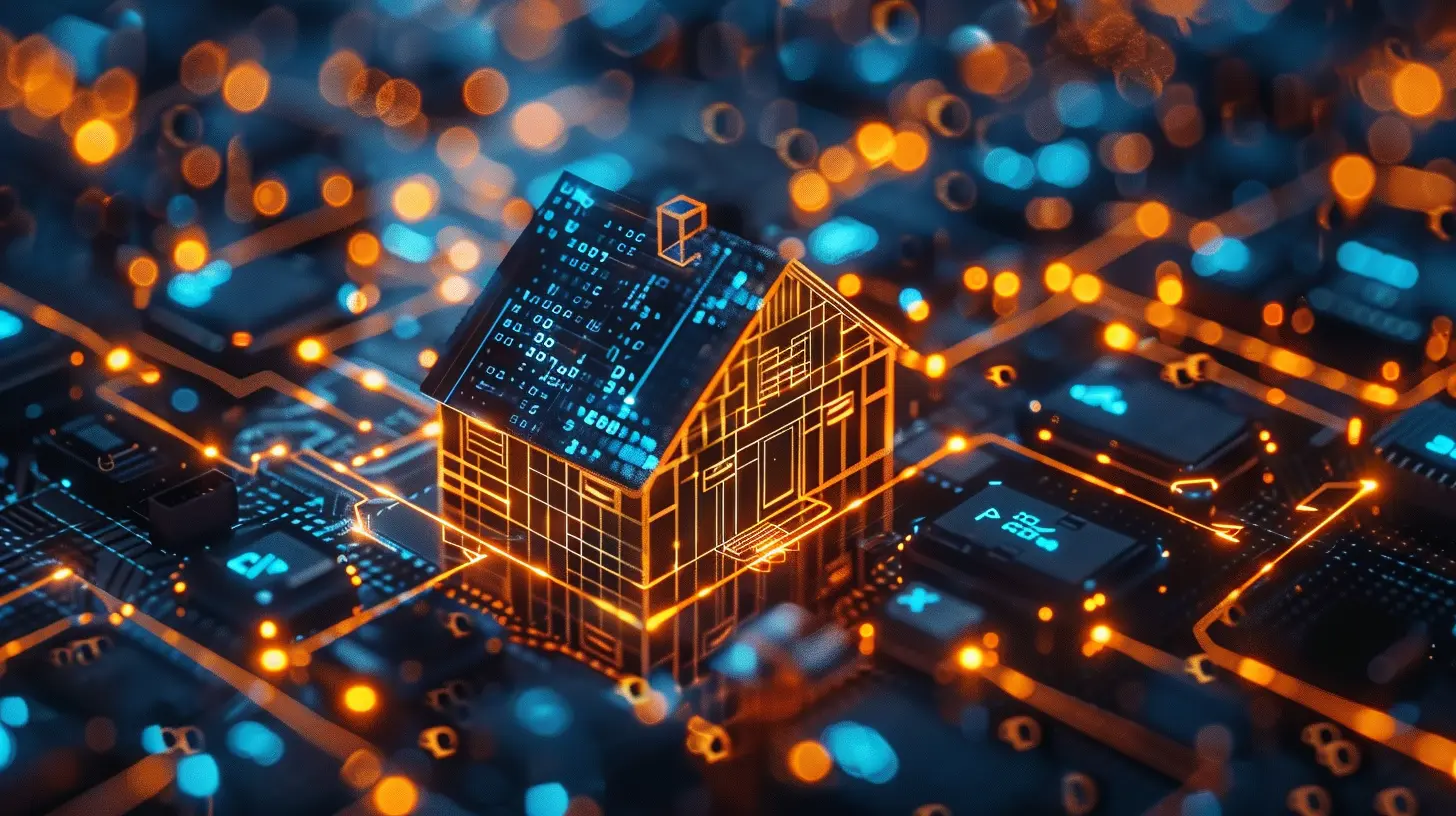How Blockchain Is Revolutionizing Property Transactions
18 September 2025
Investing in real estate has always been a complex process, full of paperwork, intermediaries, and long waiting periods. But what if I told you that blockchain technology is changing the game? Yes, you heard that right! Blockchain, the same tech behind cryptocurrencies like Bitcoin, is now making property transactions faster, more transparent, and incredibly secure.
So, how is this revolutionary technology transforming the real estate industry? Let's dive in! 
Understanding Blockchain in Real Estate
Before we get into the impact, let’s break down what blockchain actually is.At its core, blockchain is a decentralized, digital ledger that records transactions across multiple computers. This means that once data is added, it cannot be altered or deleted—making fraud nearly impossible. In real estate, this translates to secure property records, faster transactions, and reduced dependency on middlemen.
Simply put, blockchain is like an incorruptible digital notary that verifies every property deal in real time. 
How Blockchain Is Transforming Property Transactions
Now, let’s look at how blockchain is making waves in real estate.1. Eliminates Middlemen and Reduces Costs
Traditionally, buying or selling a property involves multiple intermediaries—real estate agents, brokers, banks, and even lawyers. Each of them takes a cut, adding to the overall cost.With blockchain, smart contracts allow buyers and sellers to transact directly. A smart contract is a self-executing digital contract with predefined conditions. Once all conditions are met, the contract executes itself—no need for a middleman!
This means no more hefty commission fees, excessive paperwork, or unnecessary delays.
2. Faster and More Secure Transactions
Ever tried purchasing a property and waited weeks (or even months) for everything to be finalized? Painful, right? One of the biggest delays comes from verifying ownership and ensuring there are no legal issues.Blockchain speeds this up by providing an immutable record of all past property ownership and transactions. Since all data is stored in a transparent and secure ledger, verifying a property's history becomes a matter of minutes rather than weeks.
This not only makes transactions faster but also drastically reduces fraud and title disputes.
3. Enhanced Security and Fraud Prevention
One of the biggest nightmares in real estate? Fraudulent transactions! Titles can be faked, ownership claims can be manipulated, and buyers can be scammed.Blockchain technology prevents this by storing property records on a highly secure and decentralized network. Once a transaction is recorded, it can’t be changed—meaning no one can tamper with the data.
Think of blockchain as a time-stamped, unalterable vault for property records. It ensures every transaction is authentic, reducing fraud risks to almost zero.
4. Tokenization of Real Estate
Ever wished you could invest in high-value properties but didn’t have the massive capital required? Blockchain makes this possible through a concept called tokenization.Tokenization allows properties to be divided into digital shares (tokens), which can be bought and sold just like stocks. This makes real estate investment accessible to more people without requiring full ownership of a property.
Imagine owning a fraction of a luxury apartment in New York or a beachfront villa in Bali—all through digital tokens!
This opens up endless opportunities for small investors while improving liquidity in the real estate market.
5. Transparency in Property Transactions
Lack of transparency has always been a major issue in real estate. Buyers often have to rely on agents or property databases that may not always be 100% accurate. Hidden charges, legal loopholes, and misinformation can create a messy transaction process.With blockchain, every transaction is recorded in a decentralized ledger, ensuring complete transparency. Buyers can instantly verify property ownership, transaction history, and any associated legal issues—all in real time.
No more shady deals or misleading information!
6. Cross-Border Transactions Made Easy
Buying property in a foreign country is usually a bureaucratic nightmare, involving multiple legal procedures, currency exchange issues, and trust concerns.Blockchain simplifies cross-border property transactions by enabling direct peer-to-peer transactions using cryptocurrencies. Since blockchain operates on a global decentralized network, buyers and sellers can securely deal with each other from anywhere in the world.
This eliminates unnecessary fees, speeds up transactions, and ensures trust between parties—even when they’re thousands of miles apart! 
Challenges of Blockchain in Real Estate
Like any revolutionary technology, blockchain isn’t without its challenges. Here are a few hurdles that need to be tackled:1. Legal and Regulatory Uncertainty
Many governments are still figuring out how to regulate blockchain-based property transactions. Without clear legal frameworks, large-scale adoption could face roadblocks.2. Lack of Awareness and Adoption
Despite its potential, many real estate professionals and investors are still unaware of how blockchain works. It will take time for the industry to fully embrace this technology.3. Integration with Existing Systems
Most property records are still stored in traditional databases. Shifting them to blockchain requires significant investment and infrastructure changes.Even with these challenges, the momentum behind blockchain-powered real estate is undeniable. The benefits far outweigh the hurdles, and it’s only a matter of time before this technology becomes mainstream. 
The Future of Blockchain in Real Estate
So, where do we go from here?As blockchain technology continues to evolve, we can expect:
- Wider adoption of smart contracts, reducing paperwork and speeding up transactions.
- More governments integrating blockchain for property registration, ensuring greater transparency.
- Improved real estate tokenization, making property investments more accessible.
- Global real estate marketplaces, allowing seamless property transactions worldwide.
Blockchain has the power to revolutionize the property market as we know it. In a few years, buying and selling real estate might be as easy as sending an email!
Final Thoughts
Blockchain is more than just a buzzword—it’s a game-changer in real estate. By eliminating fraud, reducing costs, speeding up transactions, and making property investment more accessible, this technology is paving the way for a more transparent and efficient property market.While challenges exist, the potential of blockchain in property transactions is undeniable. As more people understand and adopt this technology, the way we buy, sell, and invest in real estate will never be the same.
So, are you ready for the future of real estate powered by blockchain?
all images in this post were generated using AI tools
Category:
Real Estate TrendsAuthor:

Cynthia Wilkins
Discussion
rate this article
1 comments
Sheena McGinnis
Great insights on the transformative impact of blockchain in real estate! This technology promises to enhance transparency and efficiency in property transactions. Excited to see how it continues to evolve in the industry.
September 18, 2025 at 11:06 AM

Cynthia Wilkins
Thank you! I'm glad you found the insights valuable. The evolution of blockchain in real estate is indeed exciting!


